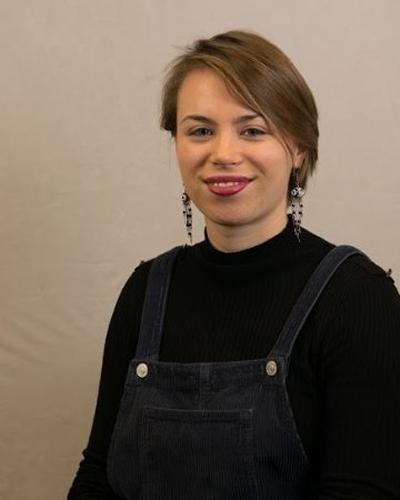Joanna Tonge MA Maritime Archaeology

"The opportunities available to me at Southampton have been amazing in breadth and how rewarding they have been for me. I have investigated archaeology throughout the entirety of human time, travelling to Bulgaria, Spain, Lithuania and across the UK"
What made you choose to come to study at Southampton?
I was interested in attending a Russell-Group university, so that the teaching would be research led as well as covering the history of the discipline.
Southampton is close to the water and close to south-coast beautiful places. I am drawn to places which offer a range of water sports but mostly my masters course is very niche and Southampton is really the best place to be to study Maritime Archaeology.
How did Southampton help you settle in and help you belong?
I was unsure about the degree I had been accepted into during my undergraduate at Southampton, BA History, but the university allowed me to determine my strengths and I was accepted into Archaeology to help me follow a career I was truly passionate about.
What have been your Southampton highlights so far?
The opportunities available to me at Southampton have been amazing in breadth and how rewarding they have been for me. I have investigated archaeology throughout the entirety of human time, travelling to Bulgaria, Spain, Lithuania and across the UK thanks to members of staff and their open approach to students. I have been able to follow the path that most interests me with the support my department.
How has the research culture at the University informed your teaching?
An external internship with English Heritage working with their properties and collections in the Midlands was offered through staff connections and allowed me to appreciate the working environment of potential career pathways after my undergraduate degree at Southampton.
My dissertation for my undergraduate degree, which I presented at the European Association of Archaeologists, was entirely research-led by me with the guiding influence of my supervisor. I have learnt to manage my time, work within ethical frameworks and push my work into a higher standard.
What are you enjoying most about your course?
The combination of both the science and the humanities offers me the opportunity to follow up on such a wide range of my interests and combine them in ways that I would not think possible on other courses and other programmes.
Have you had the opportunity to study modules outside of your core subject area?
Some of the most useful courses I have taken during my time in Southampton have been the interdisciplinary modules which is offered across many different degree programmes throughout the university. They encourage a really interesting exchange of ideas across disciplines. After completing one of these modules I took an idea from a group assignment to pitch at a Documentary festival in Sheffield, another module inspired me to follow the maritime aspects of archaeology into a masters.
What networking, employment and work experience opportunities have you been involved with?
After being asked on a project in the Black Sea investigating shipwrecks and environmental change in the area I made several new connections and lifelong friends! This experience has opened doors for me into new avenues of research that I would never have imagined myself getting involved in. Working within geophysics, marine geo-archaeology and testing educational programmes for a major scientific expedition.
What other activities have you taken advantage of while at University?
In addition to my studies, the Archaeology department runs open days which allow you the opportunity to engage with interested members of the public in the subjects you want to share with a wider audience.
The Archaeology department offered an internship working with their Osteoarchaeology collections which allowed me to improve skills I had gained through undergraduate modules and develop entirely new ones working creatively with new technology.
I have been an active member in a variety of societies over the four years that I have been here ranging from comedy society, kayaking club and feminist society to art society and indoor climbing. Through these I have gained personal confidence and friends which share my interests.
What is it like studying here?
There is a great deal of freedom to create a studying routine, which can be daunting but with the friendly atmosphere in my department I am able to add to my contact hours and discuss my concerns and ideas with helpful staff members.
I can get access to materials that I need for research almost without fail and when I can’t find exactly what I need, my lecturers have gone above and beyond to find a way for me to gain access to resources.
How do you rate study facilities at the University, such as the Library?
I like Hartley library as a study space, and it is encouraging that the university deals with students concerns when during exam season space can get tight. The new addition of study space, particularly at Avenue campus has directly improved my ability to work.
Do you have any idea of what you would like to do in the future?
I hope to continue in my current field and complete a PhD. with a focus on Maritime Archaeology and to include aspects of feminist theory into this research.
By getting involved in as many opportunities that the university offers as possible I have been able to broaden my horizons as well as make decisions on how to focus into my interests.
Do you like living in Southampton?
Southampton is a very student friendly city with the Solent and college as well as the University of Southampton itself. I like its proximity to the New Forest and beaches further down the coast for peace and quiet. That said it is nice to live in a place with the bustle of a larger place, where there is always something going on.